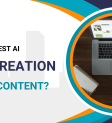
Artificial Intelligence (AI) has quickly become one of the most impactful technologies in the world. From self-driving cars to chatbots and predictive analytics, AI is reshaping every industry. Businesses are embracing AI solutions to automate processes, enhance customer experiences, and improve decision-making. In this article, we will explore how AI solutions are transforming industries, the benefits they bring, and the future of AI in various sectors.
What is Artificial Intelligence (AI)?
Artificial Intelligence (AI) refers to the simulation of human intelligence processes by machines, especially computer systems. These processes include learning, reasoning, problem-solving, and understanding natural language. AI technology enables machines to perform tasks that traditionally required human intelligence, such as recognizing speech, understanding text, making decisions, and even predicting outcomes based on data.
AI solutions can be divided into two categories: narrow AI and general AI. Narrow AI is designed for specific tasks, such as virtual assistants or image recognition. On the other hand, general AI, which is still in its research phase, aims to perform any cognitive task that a human being can do.
The Rise of AI Solutions in Business
AI solutions are revolutionizing how businesses operate. With the advent of AI, businesses are able to streamline their operations, improve customer service, and create personalized experiences. The use of AI is particularly evident in sectors such as e-commerce, finance, healthcare, and manufacturing, where it is driving innovation and enhancing productivity.
1. AI in E-Commerce: Enhancing Customer Experience
The e-commerce industry has seen an immense transformation due to AI solutions. AI-powered tools like chatbots, recommendation engines, and predictive analytics have made it easier for businesses to understand customer behavior and offer personalized services. For instance, online retail giants like Amazon and Netflix use AI to recommend products based on a customer’s browsing history or past purchases, driving sales and improving customer satisfaction.
AI chatbots have also become a staple for many e-commerce websites, offering customers instant support and assistance. This reduces the need for human intervention, improving response times and customer service.
2. AI in Healthcare: Revolutionizing Patient Care
In healthcare, AI solutions are enabling faster diagnoses, better treatment plans, and improved patient outcomes. Machine learning algorithms are being used to analyze medical data, such as imaging scans and patient records, to detect diseases early. AI-powered platforms like IBM Watson Health are helping doctors make more informed decisions by providing insights from vast medical databases.
AI is also improving patient care by enabling personalized treatment plans. By analyzing a patient’s medical history, genetic data, and lifestyle choices, AI can recommend tailored therapies that are more likely to be effective.
3. AI in Finance: Enhancing Security and Risk Management
The financial industry is another sector where AI solutions are making a significant impact. AI-powered tools are being used to detect fraud, automate trading, and manage risks. For example, AI algorithms can analyze transaction data in real-time to identify suspicious patterns and prevent fraudulent activities.
In addition, AI is helping financial institutions streamline operations by automating routine tasks like data entry, compliance checks, and customer service. This allows businesses to focus on more complex tasks while reducing costs.
4. AI in Manufacturing: Optimizing Production Processes
Manufacturing is one of the most significant beneficiaries of AI technologies. AI-powered robots are increasingly being used to automate assembly lines, improving productivity and reducing the risk of human error. These robots can work around the clock, resulting in faster production cycles and lower labor costs.
Moreover, AI solutions are being used to monitor production lines in real-time. Predictive maintenance tools analyze machine performance data to predict failures before they occur, reducing downtime and increasing the lifespan of equipment.
Benefits of AI Solutions for Businesses
The implementation of AI solutions in businesses comes with a host of benefits that can lead to increased efficiency, reduced costs, and enhanced customer satisfaction. Here are some of the key advantages:
1. Improved Efficiency and Automation
AI can automate repetitive tasks, freeing up valuable time for employees to focus on more strategic initiatives. For example, AI can handle routine customer service queries, data analysis, and inventory management, leading to increased productivity across various departments.
2. Enhanced Decision-Making
AI can process vast amounts of data in real-time and provide actionable insights that can help businesses make more informed decisions. By analyzing patterns and trends, AI can predict future outcomes, allowing businesses to plan and strategize more effectively.
3. Cost Savings
AI can help businesses reduce operational costs by automating processes and improving the accuracy of decision-making. For example, AI-powered systems can identify inefficiencies in supply chain management, recommend cost-saving measures, and optimize resource allocation.
4. Personalized Customer Experience
AI enables businesses to deliver personalized experiences for their customers. By analyzing customer data, AI can provide tailored product recommendations, personalized marketing campaigns, and dynamic pricing models that cater to individual preferences.
5. Scalability
AI solutions can scale with the growth of a business. Whether it’s managing increased website traffic, processing larger volumes of data, or handling more customer service inquiries, AI can help businesses manage growth without sacrificing quality or efficiency.
AI Initiatives: Leading the Way in Technological Innovation
The growing popularity of AI has sparked numerous AI initiatives globally, aimed at advancing the field and driving innovation. Governments, organizations, and research institutions are investing heavily in AI research and development to explore its potential and address the ethical challenges associated with its use.
For instance, the AI Initiative in the United States, spearheaded by the National Artificial Intelligence Initiative Office, focuses on advancing AI technology while ensuring it is developed responsibly. This initiative supports research in areas like machine learning, computer vision, and natural language processing, while also emphasizing the importance of ethical AI practices.
On a global scale, organizations like OpenAI are working towards making AI technologies more accessible, while addressing the concerns around AI’s impact on jobs, privacy, and security. The AI for Good Initiative by the United Nations is also focused on leveraging AI to address global challenges such as climate change, poverty, and healthcare.
The Future of AI Solutions
AI is continuously evolving, and the future holds vast potential for this technology. As machine learning models become more sophisticated, AI solutions will become even more integrated into business operations, delivering greater value. Here are some future trends in AI:
1. AI and Edge Computing
With the rise of Internet of Things (IoT) devices, edge computing is expected to play a significant role in the future of AI. By processing data closer to where it is generated, AI-powered IoT devices can make real-time decisions without relying on cloud-based servers. This is especially important in industries like autonomous driving, healthcare, and smart cities.
2. AI in Cybersecurity
As cyber threats become more sophisticated, AI will play a critical role in cybersecurity. AI-powered systems can detect vulnerabilities in real-time, predict potential threats, and automate responses to security incidents. This proactive approach will help businesses stay one step ahead of cybercriminals.
3. Explainable AI (XAI)
One of the biggest challenges with AI is the “black-box” nature of some algorithms, where the decision-making process is not easily understood. Explainable AI (XAI) aims to make AI systems more transparent and interpretable, allowing businesses to trust and verify AI decisions.
4. AI-Powered Creativity
AI is also making strides in creative industries like music, art, and content creation. AI-driven tools are being used to generate music, write stories, and create visual art. As AI continues to evolve, it may soon play a significant role in shaping the future of creative expression.
Conclusion
Artificial Intelligence (AI) is no longer just a futuristic concept; it is a reality that is transforming businesses and industries worldwide. From enhancing customer experiences to streamlining operations and improving decision-making, AI solutions are providing businesses with the tools they need to stay competitive in a rapidly evolving market. As AI continues to evolve, its impact will only grow, leading to even more innovative applications in the years to come.
By embracing AI initiatives and leveraging AI technologies, businesses can stay ahead of the curve, improve efficiency, and unlock new growth opportunities. As we move forward, it’s clear that AI will continue to shape the future of industries, creating endless possibilities for innovation and progress.




